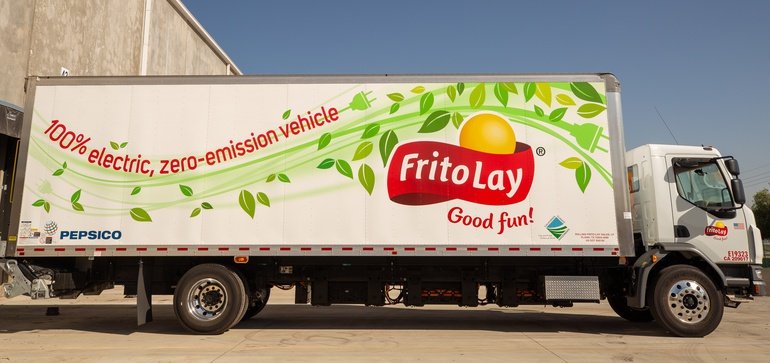PepsiCo to invest $200M in plant expansion as snack consumption surges

Dive Brief:
- PepsiCo’s Frito-Lay division is spending $200 million at its Rosenberg, Texas, facility to add two manufacturing lines for Funyuns and tortilla chips, as well as to increase capacity at the warehouse, the company said in a statement. The expansion, which is expected to be completed by 2023, will create 160 full-time jobs.
- Frito-Lay’s Rosenberg location currently employs more than 750 people and produces more than 117 million pounds of snacks annually. PepsiCo previously spent $138 million in 2019 in Rosenberg to add a new Cheetos line, seasoning and packaging equipment, and a warehouse expansion.
- The investment by Frito-Lay in its Texas facility marks the latest expansion for the PepsiCo unit. Last month, Frito-Lay announced it would invest $235 million to expand a snacks manufacturing and warehouse plant in Killingly, Connecticut, that will include the addition of two new Cheetos manufacturing lines.
Dive Insight:
Few companies have benefited from the surge in snacking in recent years more than Frito-Lay. The PepsiCo division appears increasingly optimistic the growth will continue based on the fact it is spending hundreds of millions of dollars to increase capacity at some of its facilities.
The pandemic in particular has accelerated the rise of snacking. Last year, the Mondelez State of Snacking report found two-thirds of adults worldwide preferred snacking to a more traditional meal, compared to 59% in 2019.
Although demand across the board is rising, not all snacks are created equal. Mondelez’s report showed the salty snacks category, which includes chips, popcorn and pretzels, has been especially strong with sales jumping 7% between 2019 and 2020. Frito-Lay, with its portfolio of everything from Cheetos and Doritos to Sun Chips and Ruffles, fits squarely into this sweet spot.
A big part of meeting that growth comes through the addition to its employee base. PepsiCo Foods North America, which includes Frito-Lay and Quaker Oats, hired more than 13,500 part- and full-time workers in 2020, and as of March employed nearly 70,000 people in the U.S. and Canada, a 9% increase from the end of 2019.
The increase in hiring marks a sharp contrast to a few other food and beverage makers who have ended production of some of their brands and laid off workers in the process.
General Mills reportedly told employees last week it plans layoffs of 700 to 800 positions in the U.S. and Canada, and 500 to 600 additional positions worldwide. Coca-Cola has sold brands like Zico coconut water and ended production of Tab as part of a broader culling of its portfolio. The beverage giant said in December it is cutting 2,200 jobs globally through buyouts and layoffs as part of a restructuring plan accelerated by the pandemic.
With a broad snacking portfolio and strong balance sheet, Frito-Lay can afford to plan ahead several years into the future with its multimillion-dollar investments. Even if sales of Funyuns, for example, are not as strong by the time the expansion is complete, it can shift production to one of its other brands — potentially ones it has yet to develop or acquire.
The worst thing an industry leader like Frito-Lay and its parent could do would be to watch snack demand continue to grow and be unable to capture more of that increase because it doesn’t have the capacity — essentially ceding share to a scrappy startup or deep-pocketed CPG competitor.
Source: fooddive.com

